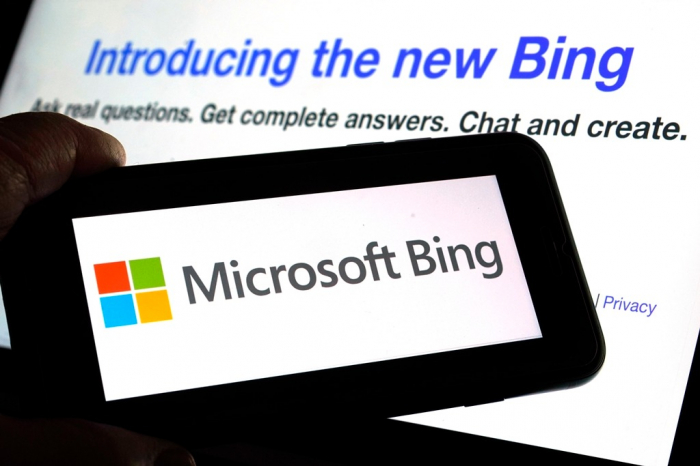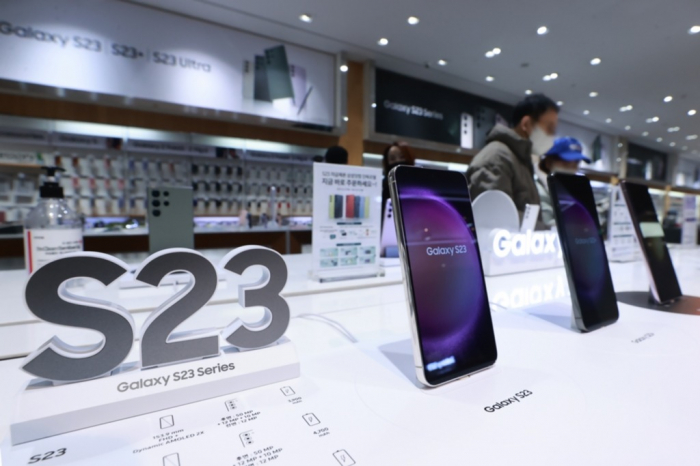Artificial intelligence
Samsung Galaxy may use Bing as default search engine, not Google
Samsung, with 27.1% share of the smartphone market, mulls switching to Microsoft's ChatGPT-enabled Bing
By Apr 17, 2023 (Gmt+09:00)
2
Min read
Most Read
LG Chem to sell water filter business to Glenwood PE for $692 million


KT&G eyes overseas M&A after rejecting activist fund's offer


Kyobo Life poised to buy Japan’s SBI Group-owned savings bank


StockX in merger talks with Naver’s online reseller Kream


Meritz backs half of ex-manager’s $210 mn hedge fund



Samsung Electronics Co., the world’s second-largest smartphone maker, is considering switching the default search engine for its Galaxy mobile phones to Microsoft Corp.’s Bing equipped with the artificial intelligence chatbot ChatGPT from Alphabet Inc.’s Google, a US daily newspaper has reported.
The potential change would come as a huge blow to Google, which currently dominates the global search engine market, as the world’s market leader Apple Inc. may follow suit.
Google’s employees were shocked to learn in March that the South Korean consumer electronics giant Samsung was considering replacing Google with Microsoft’s Bing as the default search engine on its devices, The New York Times reported on Sunday.
Google’s reaction to the Samsung threat was “panic,” according to internal messages reviewed by the newspaper. An estimated $3 billion in annual revenue is at stake with the Samsung contract, while an additional $20 billion is tied to a similar Apple contract that will be up for renewal this year, the report said.
Samsung has been using Google as its default engine since 2010 when the company launched its first smartphone equipped with the Android mobile operating system.
THREAT TO SEARCH ENGINE KING
Google is the unrivaled dominant player in the search engine industry, making up 93.2% of the global market as of last month followed by Microsoft’s Bing with a mere 2.9%, according to research firm StatCounter. In the mobile search engine sector, Google accounted for 96.6%, while Bing made up only 0.5%.
Smaller players including Microsoft, however, have started biting into Google’s share with AI technology.
Visitors to Bing have increased by 15.8% since Microsoft enhanced Bing with ChatGPT developed by OpenAI based on generative AI technology, Reuters reported last month, quoting Israeli web analytics firm SimilarWeb Ltd. Google’s visitors fell by 1% during the period.
Samsung’s possible switch to Bing is a huge threat to Google. The South Korean company made up 27.1% of the global smartphone market as of March, following iPhones' Apple with a 28.4% market share.

“The Samsung threat represented the first potential crack in Google’s seemingly impregnable search business, which was worth $162 billion last year,” The New York Times reported.
GOOGLE’S DEFENSE
In February, Google introduced Bard, its own chatbot, but failed to lure back global users as it got a simple query wrong. That caused Alphabet shares to tumble by more than 7%.
Google has yet to apply Bard to its search engine while developing a new search engine with AI technology, under the project name Magi, according to The New York Times.
The company is expected to reveal the new search engine in the US next month with a plan to initially release the service to just 1 million users and expand it to up to 30 million by year-end.
Write to Ye-Rin Choi at rambutan@hankyung.com
Jongwoo Cheon edited this article.
More to Read
-

-
 Korean chipmakersSamsung in talks to supply customized HBM4 to Nvidia, Broadcom, Google
Korean chipmakersSamsung in talks to supply customized HBM4 to Nvidia, Broadcom, Google19 HOURS AGO
-
 EnergyLS Cable breaks ground on $681 mn underwater cable plant in Chesapeake
EnergyLS Cable breaks ground on $681 mn underwater cable plant in ChesapeakeApr 29, 2025 (Gmt+09:00)
-
 Business & PoliticsUS tariffs add risk premium to dollar assets: Maurice Obstfeld
Business & PoliticsUS tariffs add risk premium to dollar assets: Maurice ObstfeldApr 29, 2025 (Gmt+09:00)
-

Comment 0
LOG IN


